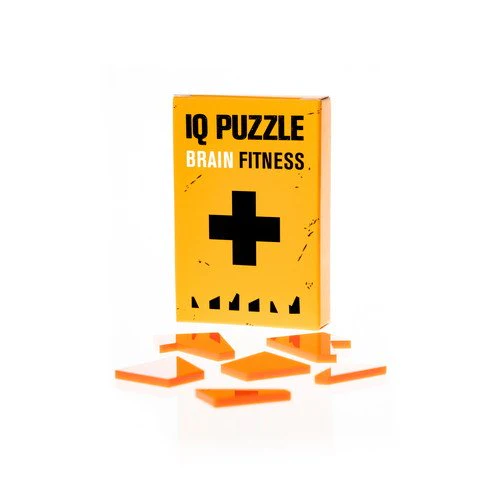
Young children experience growth spurts as they mature. Their bodies and minds are developing at extraordinarily rapid speeds throughout this time, and they seem to have an endless desire for knowledge and learning. They start to have a lot of questions regarding their surroundings. Making the most of this stage can be achieved by parents giving their children instructional wooden puzzles.
For kids have a lot of significant advantages. They can be applied to encourage cognitive growth in these crucial formative years. Children's puzzles pique their innate interest and present them with fresh challenges to tackle.
Playing with wooden puzzles helps youngsters develop a variety of cognitive capabilities, two of which are reasoning and problem-solving skills. For instance, a youngster uses reasoning and recall to remember where each piece belongs when they try to fit shapes into their designated openings in a shape-sorting toy. When a piece doesn't fit correctly, they utilise logic to figure out what's wrong and then locate the right piece to finish the puzzle.
A wonderful approach to introduce letters, numbers, shapes, and colours to toddlers and preschoolers is through wooden puzzles. They can familiarise themselves with these letters before they can spell and write by physically placing shapes in the shape of numbers, letters, or colour-coordinated pieces into the appropriate puzzle spots.
Wooden IQ puzzles are usually made for small boys, so the pieces are big enough for them to grip and manipulate, yet small enough to fit in little hands. There are no safety risks because the pieces are too big for them to fit in their mouths. The big, thick wood pieces are perfect for small hands to grasp because of their size. Because the natural wood construction is straightforward by design, young children are not intimidated.
Taking the pieces out of the puzzles and putting them back helps kids improve their fine motor skills and hand-eye coordination. They get more confident and self-assured as they finish these duties successfully. As they solve a puzzle successfully, kids start to believe that they can accomplish anything.
Wooden IQ puzzles also have the advantage of having a long lifespan. Because puzzles are made of wood, which is difficult for children to damage, parents don't have to worry about them wearing out. Given that these toys are nearly unbreakable, several families offer their kids puzzles of this kind as early as one year old or even younger.
To make the most of wooden puzzles, parents should be aware that not all children will play with them right away and will need some encouragement. Sometimes kids want to play with the puzzle, but they can't since they don't know how to start.
Parental participation is the solution to both of these issues; play with the kid and demonstrate to them the various functions of the puzzle, such as demonstrating colours and forms, and engage with them as they learn about the new toy and its possibilities.
Puzzles are a great way to enhance toddlers' cognitive development for five reasons.
All ages of kids can benefit greatly from puzzles when it comes to their cognitive development, but have you ever considered the advantages of puzzles for young children specifically? What exactly do puzzles that are sold to young children do for developing brains? There are many different types of puzzles available.
Youngsters Acquire Problem-Solving Skills
Children who work on the best IQ puzzles will learn how to explore a lot of various solutions before figuring out the right one. They will work on solving problems by trial and error, rotating, flipping, and rearranging parts until they fit precisely. Additionally, it will teach kids tenacity, patience, and logic.
Puzzles Promote Eye-Hand Coordination
To make the pieces fit together, children must flip, move, and turn them; in the process, they are strengthening the link between their hands and their eyes. The more gripping and manipulating babies engage in, the better; in fact, some researchers claim that toddlers benefit even more from this kind of engagement than reading or writing.
One of Melissa and Doug's most well-liked wooden puzzles, "The Wheels on the Bus Song Puzzle"
The Development of Fine Motor Skills
Small motions of the hands and fingers are necessary for fine motor abilities, which can be strengthened by solving puzzles. Furthermore, since writing with a pencil necessitates precise, small hand and finger movements, a youngster who has been honing their fine motor skills from an early age would find it easier to learn how to write.
Hape's "Forest Animal Tactile Puzzle" blends sensory exploration with the fine motor abilities of a substantial wooden puzzle. Kids can feel the animal coats beneath each item.
An Improvement in Shape Recognition
For both infants and toddlers, learning to identify and categorise shapes is a crucial aspect of their cognitive development. Children can develop this skill by using best IQ puzzles since they can feel the shapes in addition to seeing them.
Puzzles Help to Improve Memory
Children will attempt to fit parts, put them down, and try again until they succeed especially with piecezz puzzle. Then, in order to use the pieces they have placed aside, they will need to remember their sizes, shapes, and colours.